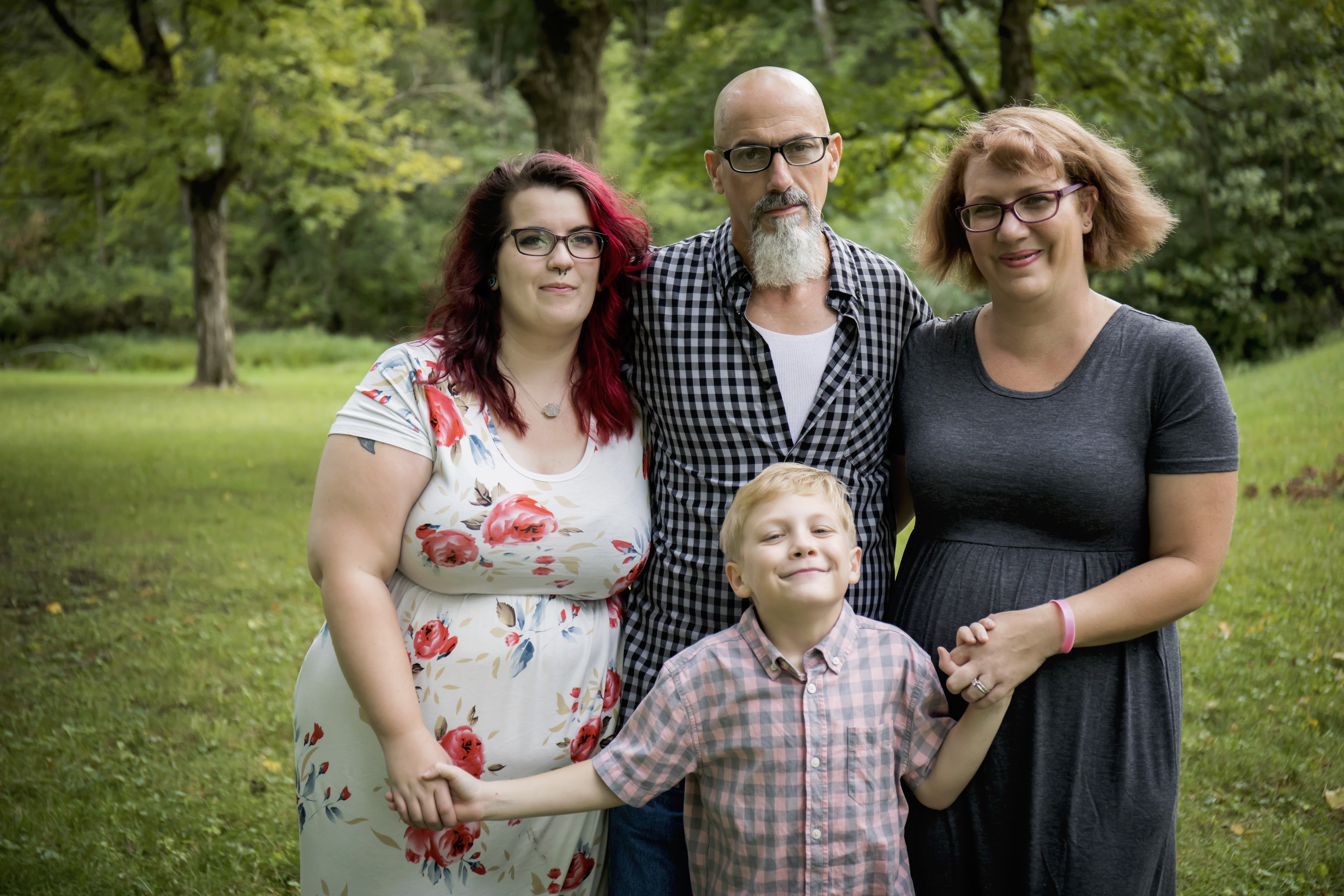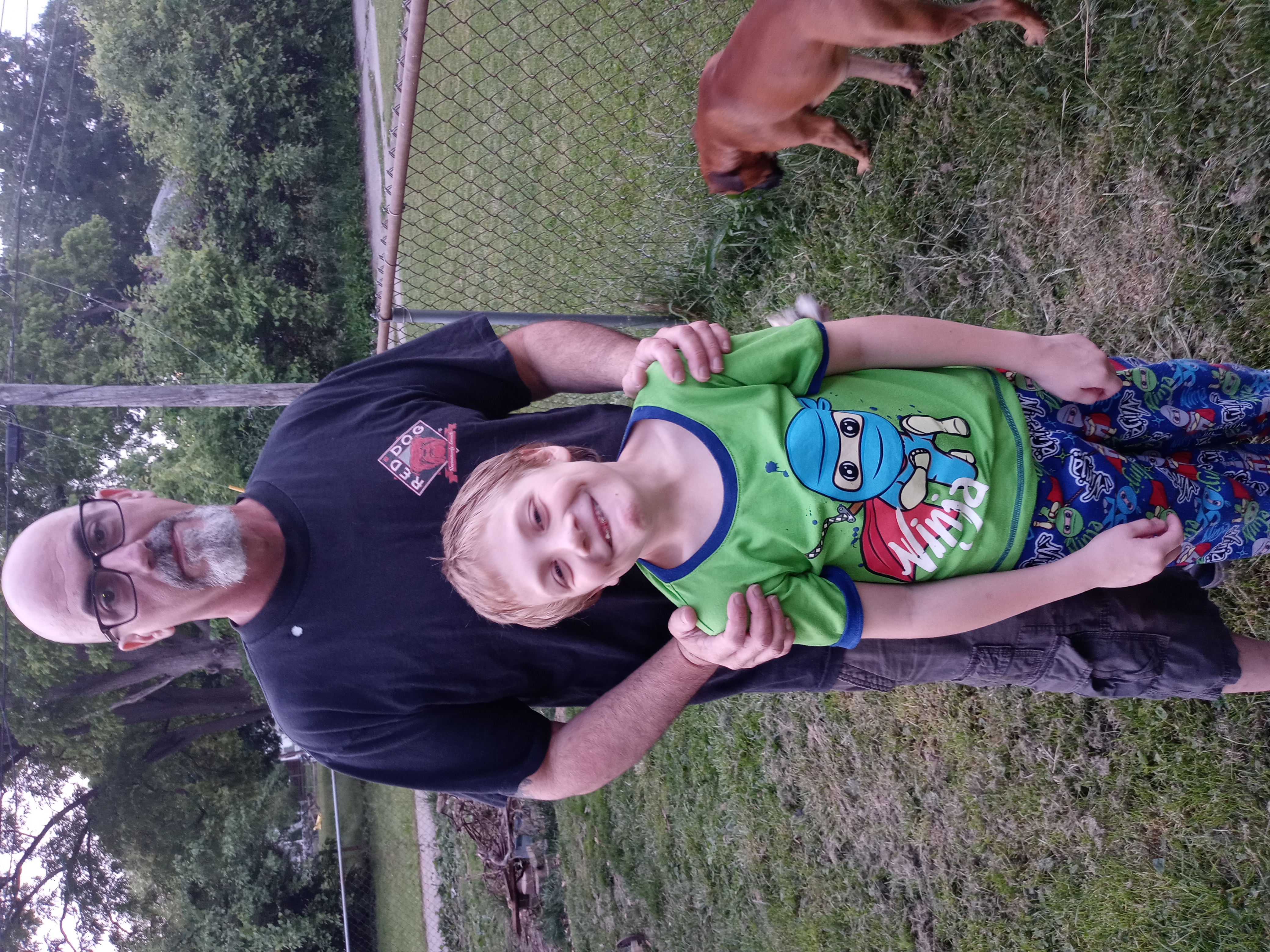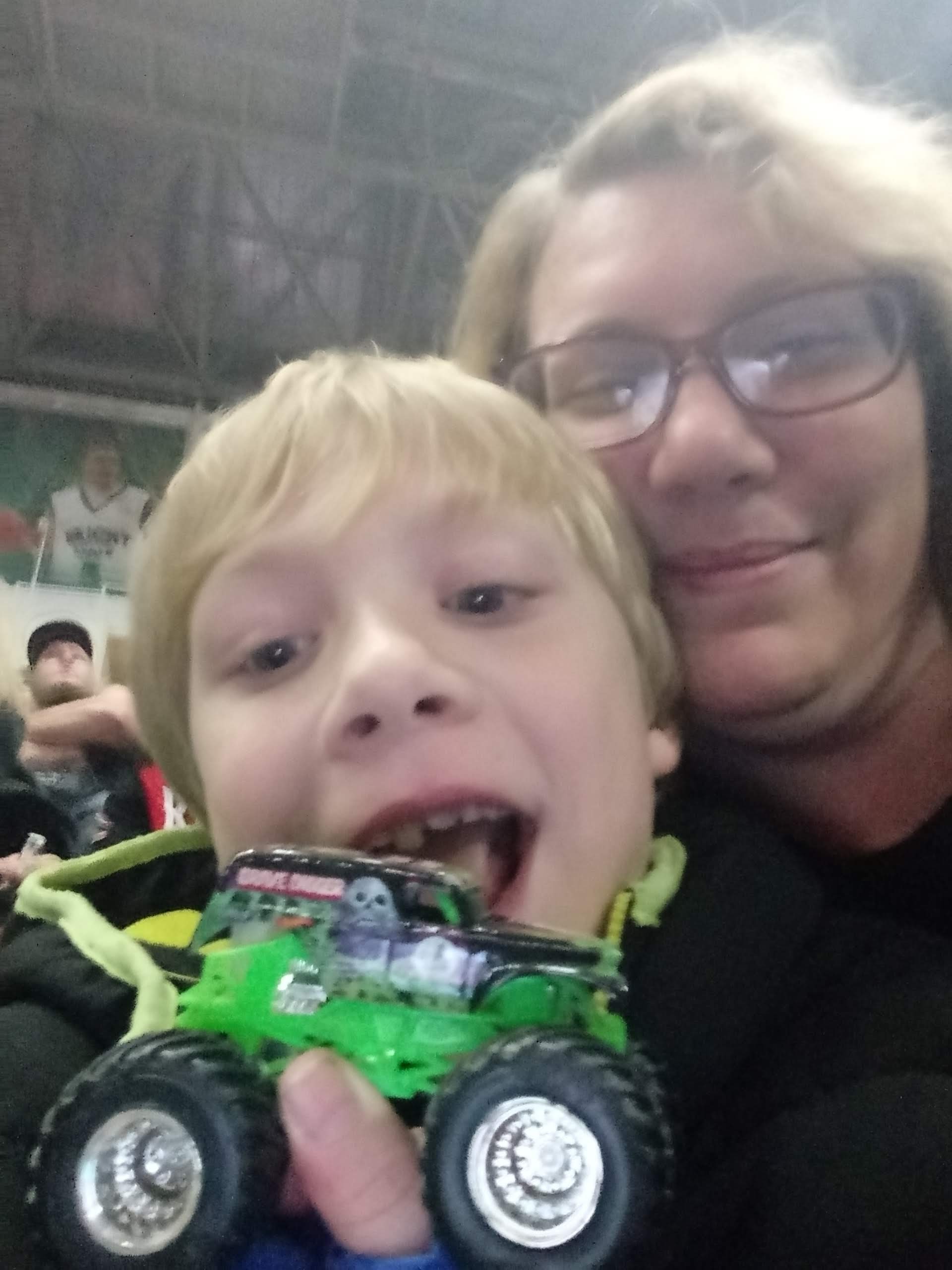‘This is where they need to be’
Tim Shook thought maybe it was just a phase.
Surely his wife, Talisha, didn’t want to open their home, full time, to a bunch of kids. Surely she would move on from the idea of becoming a foster parent, helping children in their time of need on a path back to reunifying with their families.
Is it a phase? More than two years later, Tim has a clear answer.
“Yeah,” he said. “It’s not.”
Talisha always felt the calling to become a foster parent. Tim admits that he did not. They already had children before they started – she, 10-year-old Noah, adopted as a newborn and he, a daughter in her mid 20s. 
But they also had room and the capacity to help.
While they started on the path to becoming foster parents in January 2019 with different mindset, they are in sync now.
They better be, since Noah finds himself with five foster siblings ranging in age from 2 to 7 years old, in one very full house.
The Shooks planned on smaller numbers. And yet, they’ve had as many as seven kids under their roof at once. When the need is there, so are the Shooks.
They became foster parents with a specific purpose in mind. They wanted to provide a safe home for children whose parents have had their rights terminated by the court, a critical step toward making a child legally free for adoption. When children have needed that safe home, the Shooks have stepped up.
“This is where they need to be,” Talisha said. “We want as little trauma for them as possible.”
Foster parents’ priorities vary. They all sign on to make a difference in the lives of children and families – and do. Some hope to adopt a child they foster. Some work tirelessly to reunite the children with their family.
That last one? That’s the Shooks.
They make it a point to maintain relationships with their foster children’s biological parents and support reunification. They do whatever they can to maintain the bond between the children and their parents. 
Communication is critical. Keeping the parents connected with the children – being available for phone calls every day if that’s what they want – is something Tim and Talisha strive to do. They also try to bring everyone together for visits, so the children can see the Shooks getting along with their biological parents. They want the children to see it’s one big team, one big family with the children’s best interests at heart.
“In the end, that's their parents,” Talisha said. “And if we can support them … so the kids are safe, that's where the kids should be. That’s where the kids want to be. If we love these kids, we need to support that.”
One of the ground rules Tim and Talisha set when they started fostering was to bring only children younger than Noah into the home. Noah wanted siblings, but he also wanted to remain the oldest.
And they thought that request was reasonable – a way of keeping Noah from ever feeling like he’s lost his place in the home.
It hasn’t always been a smooth transition, welcoming newcomers into the house. Like any child his age might, Noah struggles at times with sharing with his foster brothers and sisters.
Those challenges remind Tim and Talisha how important it is they involve Noah in their journey, every step of the way.
Communicating with the children you already have is key, they say. For the Shooks, every decision they make is a family decision.
“I've asked Noah, I don't know how many times, ‘Are you still happy with us doing this?’” Talisha said. “Sometimes it’s ‘no,’ and then the next day, he's playing with one of the kids, and he's like, ‘I'm not done.’ (You have to) just let the kids know that they get a say in it, because they're part of the team.”
Even Tim’s daughter, despite living outside of the home, comes back every once in a while to help out with what Tim lovingly refers to as “the chaos.”
She sees the challenges firsthand but also the joy. She and her boyfriend are even working toward becoming foster parents.
Tim’s upbringing helped him warm up to the idea of fostering, he said. His parents were teachers when he was growing up. They were around kids a lot.
They mentored some and helped others more directly. Tim remembers one student of his mother’s in particular. She was living in a home with a dirt floor and lacked many of the basic necessities most children take for granted.
“She didn't have anything,” Tim said. “And we took her out shopping, and that kinda opened the door for me.”
He didn’t know just how quickly – and how wide – that door would open. But through all the crazy, through all the chaos, he’s glad he’s sharing his home with so many who need a place to stay.
“I'm just here to give the affection, you know, and just be strong for them,” he said. “It is very rewarding and takes a lot of patience, but you can work with that.”
“It’s the most crazy, insane, wonderful, rewarding thing that you can do,” Talisha agreed. “It's not as scary as what people make it seem like. They are normal kids that have gone through some hard times that just need some love. And by giving them that little bit of time, you can change their whole life."
